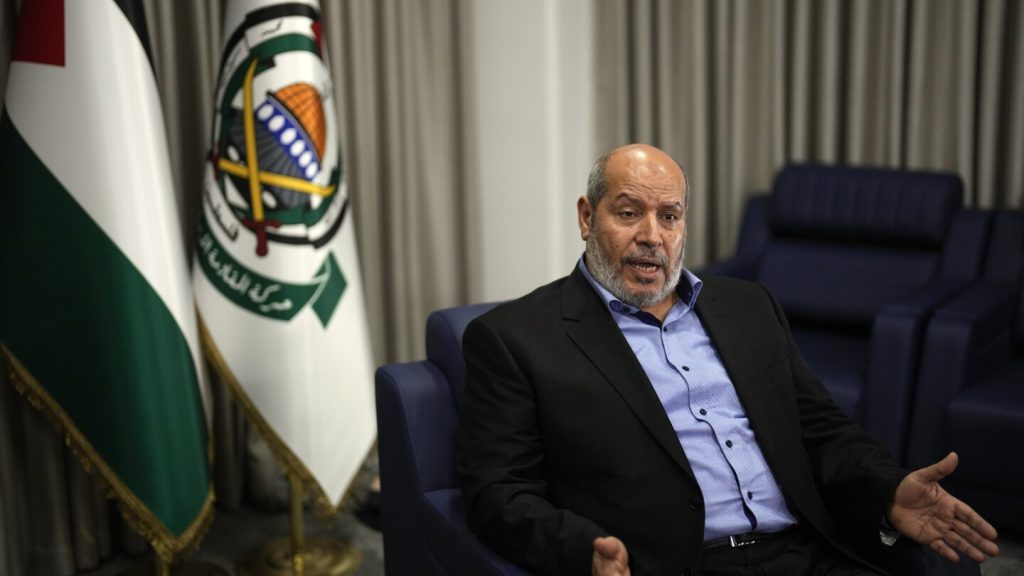In an interview on Wednesday, Hamas political official Khalil al-Hayya expressed the group’s willingness to agree to a truce with Israel for five years or more. He mentioned that Hamas would disarm and transform into a political party if an independent Palestinian state is established along pre-1967 borders. This offer comes amidst a stalemate in cease-fire talks, with Israel unlikely to consider such a scenario due to its vow to crush Hamas in response to recent attacks. Despite Hamas’ commitment to Israel’s destruction, Al-Hayya’s proposal signifies a significant concession.
Al-Hayya also discussed Hamas’s desire to join the Palestine Liberation Organization (PLO) to create a unified government for Gaza and the West Bank. His statements outlined Hamas’s acceptance of a fully sovereign Palestinian state within specified borders and the return of Palestinian refugees in accordance with international resolutions. He suggested that, if these conditions are met, Hamas’s military wing would dissolve, with the group transitioning into a political party, akin to the trajectory of other forces that fought for independence.
While Hamas has at times moderated its stance on a two-state solution, their official political program still states a rejection of any alternative to the complete liberation of Palestine. Al-Hayya did not clarify whether Hamas’s embrace of a two-state solution signals an end to the conflict with Israel or an interim step towards their goal of destroying Israel. The Palestinian Authority, which Hamas ousted from Gaza in 2007, hopes to establish an independent state in specific territories captured by Israel in the 1967 war, a plan rejected by Israeli Prime Minister Benjamin Netanyahu’s government.
The ongoing war in Gaza has resulted in extensive casualties and displacement, with cease-fire negotiations at a standstill. Despite Israel’s preparation for an offensive in southern Rafah, Hamas remains resilient, with Al-Hayya stating that the offensive would not eradicate the group. Hamas asserts that their military capabilities remain largely intact, with internal communications uninterrupted during the conflict. Previous efforts to reach a long-term truce and secure the release of remaining hostages have stalled, leading to a suspension of talks and a reassessment of mediators’ roles.
Hamas’s top political officials have relocated from Qatar to Turkey, with ongoing accusations from Israeli and U.S. officials regarding Hamas’s commitment to a deal. Al-Hayya refuted these claims, highlighting concessions made by Hamas in the negotiations. The group maintains demands for a permanent cease-fire and full Israeli troop withdrawal from Gaza, conditions Israel has resisted. Despite the destruction and casualties resulting from the Oct. 7 attacks, Al-Hayya stated that Hamas does not regret their actions, emphasizing the operation’s success in raising global awareness about the Palestinian issue.
In conclusion, Hamas’s openness to a truce and possible transition to a political entity, if certain conditions are met, reflects a potentially significant shift in their approach to the conflict with Israel. The complexities of the situation, including differing views on a two-state solution and ongoing violence, underscore the challenges in reaching a lasting resolution. With cease-fire talks stalled and tensions remaining high, the path towards peace and reconciliation between Hamas and Israel remains uncertain.


